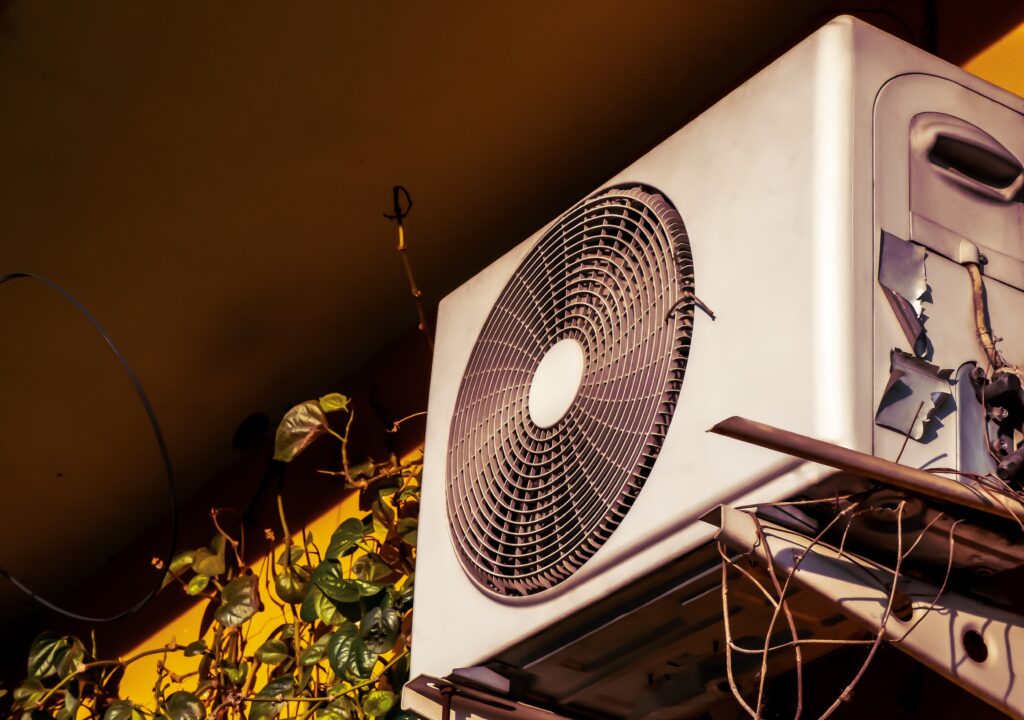Summer can be brutal, with scorching temperatures that make you seek refuge indoors. Your AC system becomes your lifeline during these months, providing cool and comfortable air. To ensure that your AC performs optimally throughout the summer, there are several key tips to keep in mind. Understanding your AC system, regular maintenance, pre-summer preparation, optimal AC settings, energy-efficient practices, and knowing when to call a professional are all vital aspects to consider. Let’s delve deeper into each of these areas.
Understanding Your AC System
The first step in keeping your AC working well is understanding how it operates. Your AC system consists of various components that work together to provide cool air. These components include the condenser, evaporator coil, compressor, and air handler. Regularly maintaining and inspecting these parts ensures they function optimally, preventing breakdowns and extending the lifespan of your AC system.
The Importance of Regular Maintenance
Regular maintenance is crucial for the efficient operation of your AC system. It involves cleaning filters, coils, and condenser fins, as well as checking refrigerant levels and inspecting electrical connections. Additionally, lubricating moving parts and ensuring that the thermostat is calibrated correctly are important maintenance tasks. By performing routine maintenance, you can catch minor issues before they become major problems, saving you time and money in the long run.
Key Components of an AC System
Understanding the key components of your AC system allows you to identify potential issues and communicate effectively with professionals during service calls. The condenser unit, located outside your home, houses the compressor and condenser coil, which handle the exchange of heat. The evaporator coil, housed inside your home, cools the air and removes humidity. The air handler distributes the conditioned air throughout your home. Becoming familiar with these components empowers you to take better care of your AC system.
Now, let’s dive a little deeper into each of these key components. The condenser is responsible for releasing the heat absorbed from your home’s indoor air. It is located outside because it needs ample space for proper ventilation. The compressor, which is housed within the condenser unit, plays a crucial role in the cooling process. It compresses the refrigerant, raising its temperature and pressure before it flows into the condenser coil.
On the other hand, the evaporator coil, situated inside your home, is responsible for absorbing heat from the indoor air. As the refrigerant passes through the evaporator coil, it evaporates, absorbing heat and cooling the air. This cooled air is then distributed throughout your home by the air handler, which consists of a blower fan and a motor. The air handler ensures that the conditioned air reaches every room in your house, providing you with a comfortable living environment.
By understanding the intricate workings of your AC system, you can better appreciate the complexity of its operation. This knowledge also allows you to troubleshoot basic issues, such as a clogged filter or a malfunctioning thermostat, before seeking professional help. Remember, regular maintenance and a basic understanding of your AC system can go a long way in ensuring its longevity and optimal performance.
Pre-Summer AC Preparation
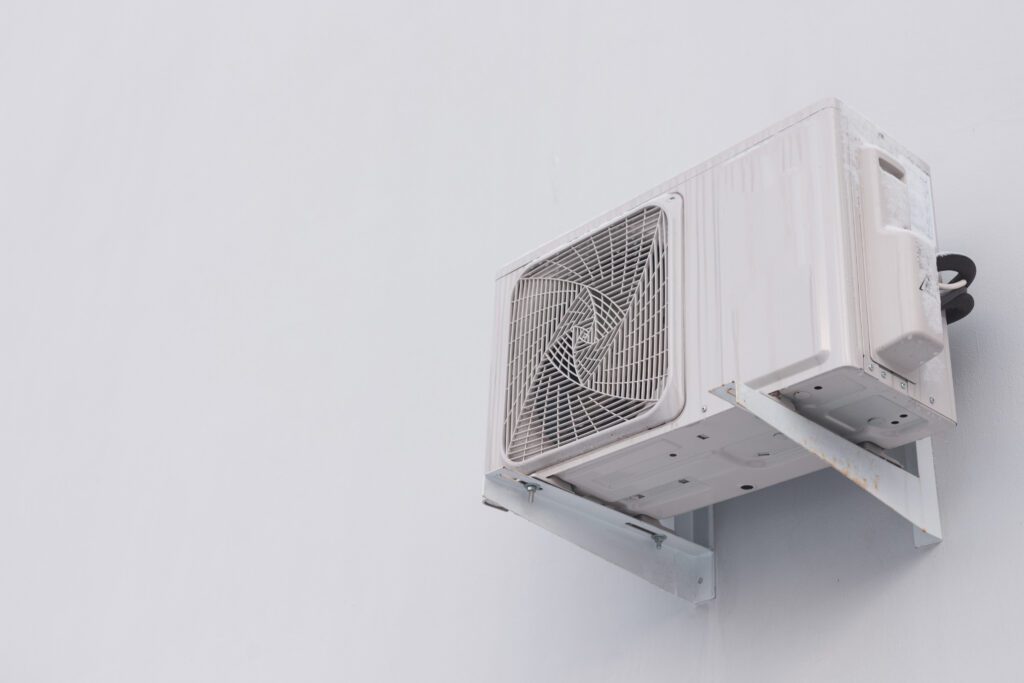
To ensure that your AC is ready to tackle the summer heat, there are a few important steps you should take before the season begins. Cleaning and replacing filters is essential as dirty filters can restrict airflow and reduce system efficiency. Checking for leaks and damage in the ductwork helps prevent cool air from escaping, ensuring that your system operates efficiently. Additionally, inspecting and cleaning the outdoor unit helps remove debris and allows for proper airflow.
As the summer approaches, it’s crucial to pay attention to the overall condition of your air conditioning system. Conducting a thorough inspection can help identify any potential issues before they escalate into costly repairs. By taking proactive measures, you can ensure that your AC unit functions optimally when you need it the most.
Cleaning and Replacing Filters
Filters play a crucial role in maintaining indoor air quality and system efficiency. Dirty filters hinder airflow, forcing the AC system to work harder and use more energy. Cleaning or replacing filters every one to three months helps maintain proper airflow and prevents the accumulation of dust and allergens in your home.
Furthermore, investing in high-quality filters can enhance the performance of your AC system. HEPA filters, for example, are designed to capture smaller particles, improving air quality and reducing strain on the system. By choosing the right filter for your needs, you can prolong the lifespan of your AC unit and enjoy cleaner, healthier air.
Checking for Leaks and Damage
Leaky or damaged ductwork can significantly impact the performance of your AC system. Air loss through leaks compromises system efficiency, causing higher energy consumption and insufficient cooling. By inspecting and sealing any leaks, you can ensure that cool air makes its way into your living spaces, providing the comfort you desire.
In addition to checking for leaks, assessing the insulation around your ductwork is essential for maintaining energy efficiency. Proper insulation helps prevent temperature fluctuations and ensures that the cooled air reaches its intended destination without unnecessary loss. By addressing insulation issues, you can maximize the effectiveness of your AC system and reduce energy costs in the long run.
Optimal AC Settings for Summer
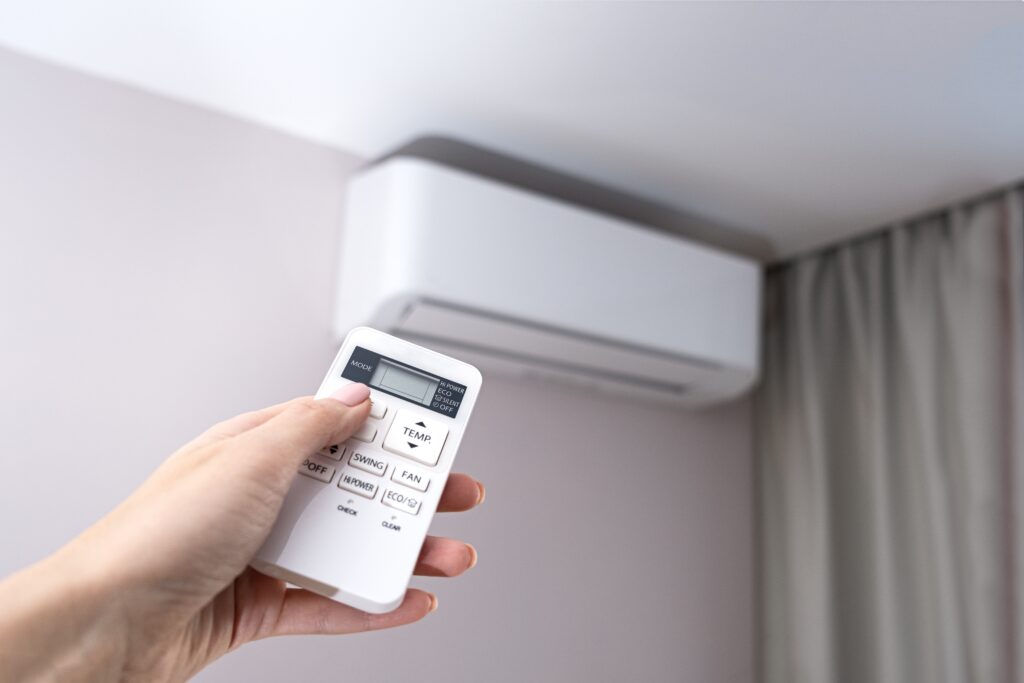
Setting your AC to the optimal temperature helps balance comfort and energy efficiency. Recommended temperature settings typically range from 72°F to 78°F (22°C to 25°C). However, personal preferences and climate conditions may influence your ideal temperature. Programmable thermostats and timers offer convenience and help maximize energy savings by adjusting temperatures when you’re away or asleep.
When considering the optimal AC settings for summer, it’s important to understand the impact of humidity on your comfort level. In addition to temperature, humidity plays a significant role in how cool or warm a room feels. High humidity can make a room feel stuffy and uncomfortable, even if the temperature is set at a moderate level. To combat this, consider using a dehumidifier in conjunction with your AC to maintain a comfortable indoor environment.
Recommended Temperature Settings
Setting your thermostat to 78°F (25°C) during the day when you’re home, and slightly higher when you’re away, strikes a balance between comfort and energy efficiency. If you find this temperature too warm, gradually increase it until you reach a level that suits your comfort without excessive energy consumption.
Furthermore, optimizing your home’s insulation can also contribute to maintaining the desired temperature more efficiently. Proper insulation helps prevent cool air from escaping in the summer, reducing the workload on your AC system. Simple steps like sealing gaps around windows and doors, adding insulation to attics and basements, and using curtains or blinds to block out sunlight can all contribute to a more comfortable indoor environment.
The Role of Thermostats and Timers
Thermostats and timers give you control over your AC system, allowing you to program temperature adjustments based on your daily routine. By automatically raising the temperature when you’re not home and lowering it before you return, you can enjoy comfort without wasting energy. Smart thermostats take this convenience to the next level, as they can learn your preferences and adjust settings accordingly.
Another factor to consider when setting your AC temperature is the type of activities you engage in at home. For example, cooking with stoves and ovens can generate additional heat, causing your AC to work harder to maintain the set temperature. By adjusting the temperature slightly higher during these activities or using kitchen ventilation to expel heat, you can help your AC operate more efficiently.
Energy-Efficient Practices for AC Use
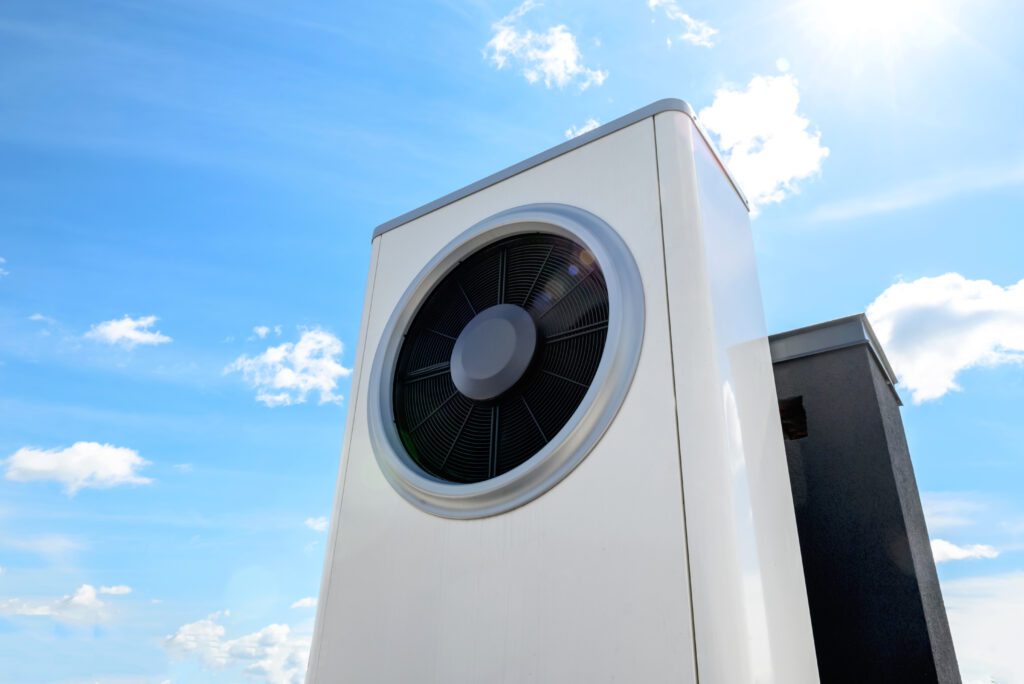
In addition to optimal temperature settings, there are several energy-efficient practices you can adopt to optimize your AC system’s performance and reduce your carbon footprint.
The Benefits of Using Ceiling Fans
Ceiling fans are an excellent complement to your AC system. They promote air circulation and create a wind-chill effect, making you feel cooler without significantly lowering the temperature. By using ceiling fans in conjunction with your AC, you can raise the thermostat setting by a few degrees, reducing energy consumption while maintaining comfort.
Moreover, ceiling fans are cost-effective and energy-efficient. They consume significantly less energy than air conditioners, helping you save on your electricity bills. Additionally, most modern ceiling fans come with a reverse function, which can be used in winter to push warm air down from the ceiling, further improving energy efficiency throughout the year.
Sealing Windows and Doors Properly
A properly sealed home helps prevent cool air from escaping and warm air from entering. Inspect windows and doors for any gaps or cracks and use weatherstripping or caulking to seal them. By eliminating drafts, you ensure that your AC system operates efficiently and that the cool air it produces stays inside your home.
Furthermore, proper sealing not only enhances energy efficiency but also improves indoor air quality by reducing the infiltration of dust, pollen, and pollutants from outside. This can lead to a healthier living environment, especially for individuals with allergies or respiratory conditions. Investing time and effort in sealing your windows and doors can result in long-term benefits for both your comfort and well-being.
When to Call a Professional
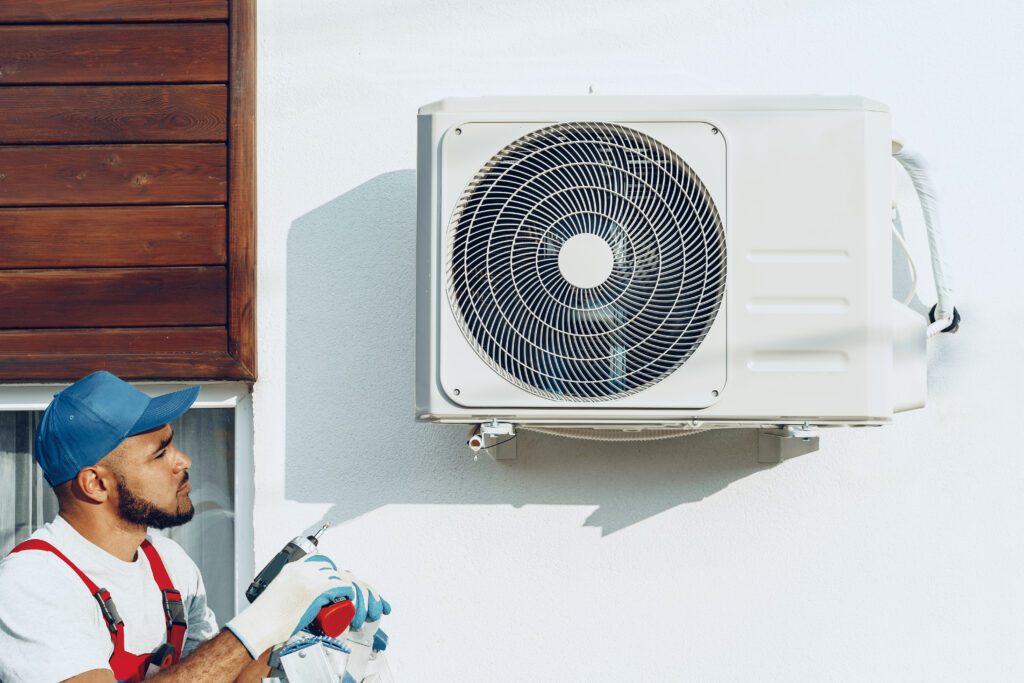
While regular maintenance and pre-summer preparation can go a long way in keeping your AC system working well, certain problems require professional intervention. Recognizing common AC problems, such as strange noises, weak airflow, or foul odors is essential in determining when a professional should be called.
Recognizing Common AC Problems
Unusual noises, such as grinding or squealing, could indicate issues with the AC system’s mechanical components. Weak airflow may point to clogged ducts or a failing blower motor. Foul odors coming from the vents may indicate mold or a buildup of debris. It is important to address these problems promptly to prevent further damage to your AC system.
Choosing a Reliable AC Service Provider
When it’s time to call a professional, choosing a reliable AC service provider is crucial. Look for licensed and insured technicians with a good reputation in the industry. Additionally, inquire about their experience and certifications to ensure they have the expertise to diagnose and resolve any AC issues you may encounter.
But what if you’re unsure whether the problem you’re experiencing warrants a professional’s attention? Well, here are a few additional signs to watch out for. If you notice that your AC system is constantly cycling on and off, it could be a sign of an underlying issue that requires professional diagnosis. Similarly, if you find that your energy bills have skyrocketed without any increase in usage, it may be an indication that your AC system is not functioning efficiently and needs professional attention.
Another common problem that may require professional intervention is when your AC system is blowing warm air instead of cool air. This could be due to a refrigerant leak or a malfunctioning compressor. Attempting to fix these issues yourself can be risky and may lead to further damage. It’s best to leave it to the experts who have the knowledge and tools to handle such problems.
By following these tips, you can keep your AC system working well and enjoy a comfortable summer. Understanding your AC system, performing regular maintenance, preparing your AC for the summer, optimizing temperature settings, adopting energy-efficient practices, and seeking professional help when necessary are all key elements to ensure your AC system performs at its best when you need it most.

